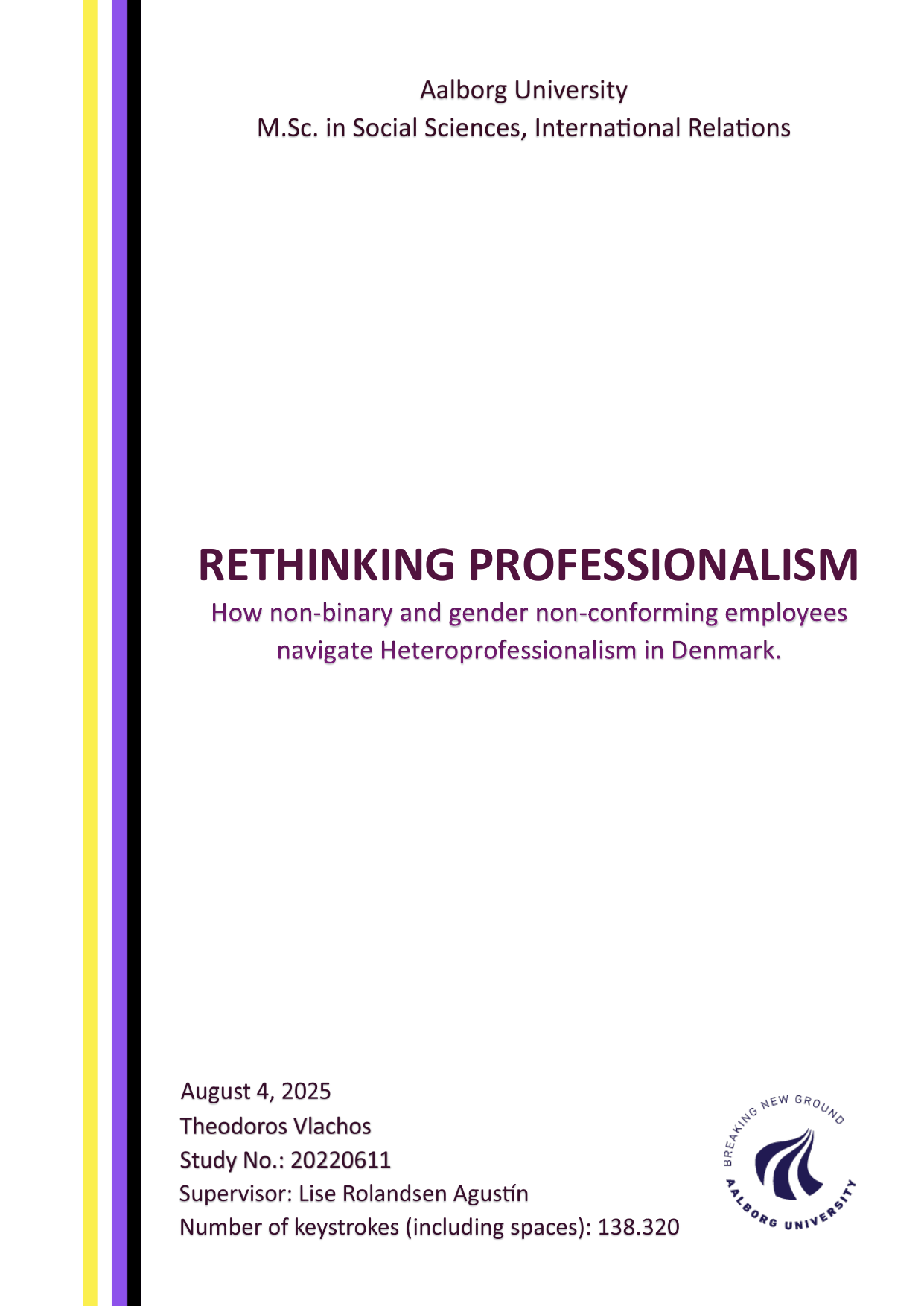
RETHINKING PROFESSIONALISM: How non-binary and gender non-conforming employees navigate Heteroprofessionalism in Denmark.
Author
Term
4. semester
Education
Publication year
2025
Submitted on
2025-08-03
Pages
51
Abstract
Non-binary and gender non-conforming people face persistent challenges in expressing their identity in professional settings, shaped by heteronormative and cisnormative norms. In recent years workplace inclusion policies have made progress, although they often fail to address deeper structural expectations of “professionalism” that marginalise gender-diverse employees. This paper investigates how non-binary people navigate gendered expectations in the workplace, developing practices of daily survival and expression within corporate environments in Denmark. Using a queer phenomenological approach and based on the concept of heteroprofessionalism, the study analyzes interviews with six non-binary employees from different organizations. This research describes that participants experience hypervisibility and invisibility simultaneously, as they are required to “perform” professional roles or self-censor within the gender binary. In parallel, they adopt creative strategies, such as strategic use of language to address performative challenges and dress codes, with the aim of regaining their personal voice and redefining their institutional recognition in the workplace. The analysis contributes to queer research on visibility, gender and everyday performance by showcasing how heteroprofessionalism functions as a form of ‘soft power’ intertwined in unspoken rules. Gender, rather than understood as a barrier, emerges as a dynamic expression to redefine professionalism. By centering lived experiences, the paper offers tools for reflection and action for other gender non-conforming people seeking space, visibility, and euphoria in their work, while also supporting the need to move from symbolic inclusion to structural transformation, calling on organizations to rethink how “professionalism” is defined and monitored.
Keywords
Documents
